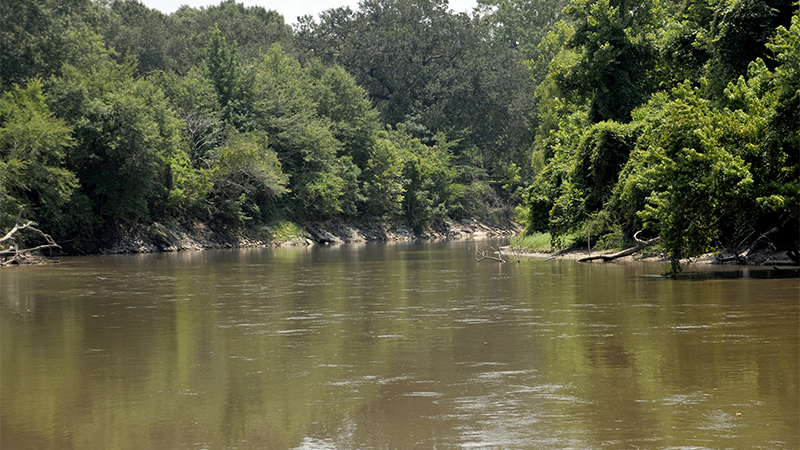One Lake Project gets approval from Jackson City Council
Published 7:00 am Saturday, July 28, 2018

- During summer and early fall, water levels on the Pearl River become lower than normal. Concerns have been raised that the One Lake Project in Jackson could greatly damage the river south of the reservoir. Photo by Leah McEwen
According to coverage by MS News Now, the Jackson City Council voted on July 17 to approve the One Lake Development project. This project could critically affect the Pearl River and surrounding environment south of Jackson.
According to an article on the project by the Rankin Hinds Pearl River Flood and Drainage Control District, the purpose of the One Lake project is to reduce the risk of flooding in the Jackson metropolitan area by erecting a dam and widening the Pearl River in the immediate area, the article states. This dam will be erected just south of the Ross Barnett Reservoir.
After floods in 1979 and 1983, which resulted in hundreds of millions in damages, an effort was put into place to find a feasible way to reduce the risk of flooding in the area, the article states. While other options were discussed, it was decided the One Lake Project would be the best option.
“Through extensive review and consideration of alternatives, the Flood Control District selected the current design as the locally preferred plan because it was the most technically feasible, environmentally sound and cost effective option,” the article states.
While the risk of flooding in the Jackson area may be reduced, there is concern that the project may lead to environmental problems.
Gulf Restoration Network Water Program Director Andrew Whitehurst, said the project would include dredging along 10 miles of the river near the Jackson metropolitan area. The river would be widened from 200 – 300 ft. to approximately 1,500 – 2,000 ft. To accomplish this, a great deal of the river’s beds, banks and nearby wetland forests would be removed.
Whitehurst said this is concerning for several reasons. First, widening the river will affect its flow and depth, which could lead to low oxygen levels. The removal of nearby trees would cause the river to be hit with more direct sunlight, which could lead to evaporation damage as well, Whitehurst said. Less water flow could also affect sediment transfer, local wildlife and could lead to devastating consequences in the case of a drought, he said.
While the flood and drainage article states that flood gates could be opened in the case of a drought, Whitehurst said this type of tampering with the river has been shown to cause damage to the banks in South Mississippi and Louisiana.
The sediment from the dredge itself would likely either be used to create levees or would be used to seal nearby wetlands for development, he said. This would displace several species of local wildlife, including two endangered species such as the Gulf Sturgeon and the Ringed Sawback Map Turtles. While Program planners have included ways to protect the species, Whitehurst said their plans may not work, which could lead to more of these endangered species being killed in the dredging process, or not being able to reach their mating grounds once the project has been completed, he said.
“It’s an experiment,” Whitehurst said.
PRC Emergency Management Agency Director Danny Manley said he enjoys going out to the river during his spare time, but water levels during the summer make it nearly impossible to navigate. He said it’s difficult to even put a boat into the water at times. With the water levels as they are, he said he can’t see how the One Lake Project would do anything to help the situation.
“I don’t see how adding another lake or reservoir could help,” Manley said.
No members of the Jackson City Council could be reached for comment before press time.
There are two upcoming public meetings scheduled for public discussion of the One Lake Project. There will be one on Aug. 2 at 6 p.m. at the INFINITY Space Center in Pearlington, Miss, and one will be held Aug. 16 at 6 p.m. at the Slidell Municipal Auditorium in Slidell, La.



